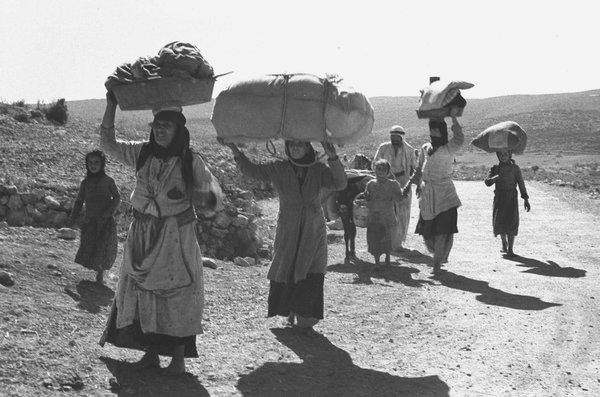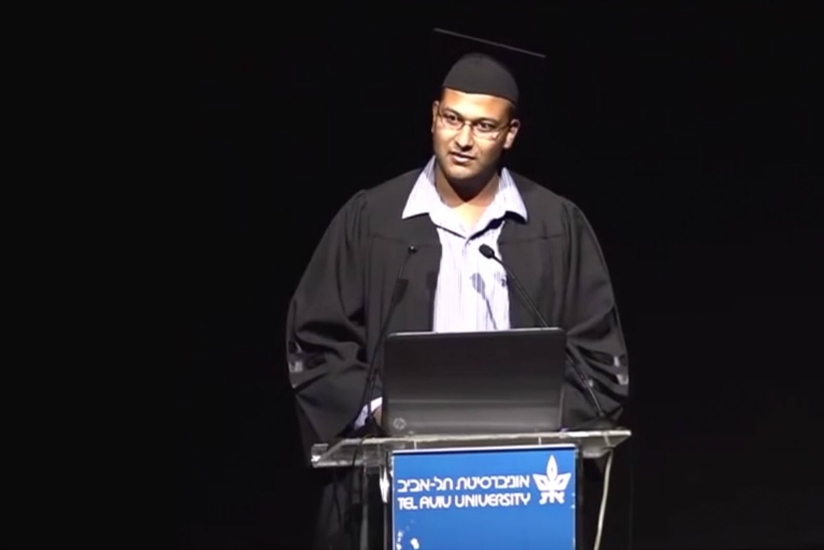“On my very first day here at the university, I saw soldiers walking peacefully among crowds of lively students. I learned there were people of every kind in the university, and the university had a place for all of them — Jews, Muslims, Christians, Druze, Bedouins and even international students.” — Haisam Hasaneen
Wow, what a wonderful country to live and study in? Those are the words of Haisam Hasaneen, an Egyptian-American student who decided to do a Master’s Degree in Middle Eastern Studies at Tel Aviv University.
While the Internet has gone mad over his valedictorian address, reactions have been shamefully divided. I was astonished to find people supporting Haisam and cheering for his words. I will not begin to mention how the Israeli media rejoiced over his speech. A person from their so-called long-time enemy was defending them — what else could be more supportive? Being cheered for by the people you have been attacking.
While the reaction of Israelis was expected, some Egyptians have taken the situation to a whole new disgraceful level. Sentences like, “He has said nothing wrong!”, “Yes, Israel is way ahead of us!”, “Finally, someone decided to go there to judge accurately” spread across Facebook statuses, comments and even in some online magazines.
While Haisam’s lack of knowledge along with the people supporting him is clearly apparent, here is a chance to remind them of Israel’s outrageous actions:
The Occupation of Palestine

1. Theodor Herzl, considered the founder of Zionism, mentioned Argentina and Palestine as choices for founding a Jewish state. So please, spare me the Israeli “religious rights” claims.
2. Once the Zionists started to send immigration waves to Palestine, they created defense organizations; an example is the Haganah, which later became the Israel Defense Forces. These paramilitary organizations launched violent attacks against Palestine, leading to the 1920s Arab riots and 1930s Arab revolts.
3. Due to the conflict, the UN issued a partition plan to divide the two communities. UN Resolution 181 issued 56% of the land for a Jewish state, and 43% for an Arab state. What is ironic about these partition percentages is that back then, Palestinians made up about 70% of the total population and Jews were only 30%. In addition, the chosen Palestinian lands were surrounded by the Jewish state.
Illegal Israeli Settlements
1. Between 1948 and 1950, Israel destroyed over 400 Palestinian villages and controlled more than 78% of historic Palestine.
2. Israel built settlements on these lands to prevent the possibility of the return of any Palestinians. Between 1950 and 1967, about 346 Jewish settlements were built.
3. In 1950, Israel imposed a law called “Absentee Property Law”, which allowed the state to confiscate the property of Palestinian Arabs’ lands, or those who were forced to or have fled the country and went to other Arab states during the war.
http://www.pij.org/details.php?id=476
http://www.pij.org/details.php?id=476
http://www.pij.org/details.php?id=476
http://www.pij.org/details.php?id=476
Okay, this was in the past. Are Palestinians now living a peaceful life?
2006
1. On Jun. 28, 2006, Israel launched “Operation Summer Rain”, rolling troops into Gaza to free a captured soldier. He was released in October 2011 in exchange for around 1,000 Palestinian prisoners.
2. On Nov. 1-7, 2006, Israel launched “Operation Autumn Cloud”, in which 56 Palestinians, half of them fighters, were killed. On Nov. 26, the army ended five months of operations in Gaza, in which more than 400 Palestinians were killed.
2008
3. On Feb. 27 – Mar. 3, 2008, Israel launched “Operation Hot Winter” after an Israeli was killed in a rocket attack. More than 120 Palestinians were killed in return.
4. On Dec. 27, 2008, Israel launched “Operation Cast Lead” with a massive air assault on Hamas to halt fighter rocket attacks. The 22-day operation left 1,400 Palestinians and 13 Israelis dead.
2012
1. On Nov. 14-21, 2012, Israel launched “Operation Pillar of Defense” with a missile strike that killed top Hamas commander Ahmed Jaabari in Gaza City. Hundreds of Israeli raids and fighter rocket attacks over the next eight days killed 177 Palestinians.
2014
1. On Jun. 12, 2014, based on an uncertain statement from Israeli Prime Minister Benjamin Netanyahu, the Israeli authorities decided to launch an offensive operation called “Operation Protective Edge”. According to Amnesty International, 1,220 strikes on Gaza were launched, affecting 632 rocket launch sites, 130 military bases and 220 tunnels and over 8,000 people were killed.
2. The UN Office for the Coordination of Humanitarian Affairs has concluded that about 250,000 people were displaced by Jul. 31, 2014, in addition to the civilians who were injured, buildings that were destroyed and homes that were damaged.
What about the Arab minorities living in Israel who, claimed by Haisam, are living such a just and wonderful life?
According to the UNDP, Israel’s Human Development Index is 0.900, making it the 16th worldwide. As for education, according to TIME magazine, Israel is the second most-educated country in the world, with more than 40% of its population being educated. In 2009, Israel spent 7.2% of its GDP on education. Is this the case for Arabs living there?
1. Arab Israeli schools lack adequate laboratories and computers, which hinders their advancement in the fields of science and technology. They find difficulty in continuing their studies, as reflected in drop out rates. In 2009, the drop out rate for 17-year-old Arab youth was 16%, compared to only 8% for Jewish youth in Israel. Consequently, the percentage of Arabs receiving high school diplomas was 35%, compared to 47%, according to the Brookdale Institute.
3. A poll was published in The Telegraph addressing the economic situation for Arabs living in Israel. 66% reported that they are unable to have access to basic needs such as food and electricity. Meanwhile, 34% reported that they can have access to these needs, but with harsh difficulties. The inability to acquire basic necessities is due to their low employment rates, wages and salaries, which later contributes to increasing rates of poverty.
Yes, Haisam, Israel is more developed than Egypt and the Israelis may be friendly people when it comes to welcoming an Egyptian-American student who, evidently, shows no hostility towards them. But we will never accept this as justification for their government’s aggressive policies, destructive attacks and violent crimes.
And please, next time someone encourages you to “think outside the box”, know that this is not permission to be unfair and biased. More importantly, try to be aware of your actions’ consequences. Bravo, Haisam, you made the Israelis so proud – yet the Palestinians, whom your soldiers have lost their lives for, so hurt.
WE SAID THIS: Don’t miss I Will Not Write About Gaza, Inside Gaza: A Harrowing First-Person Account of What Happens When Your House Gets Bombed, What You Need to Know About the Gaza-Israel Crisis.



